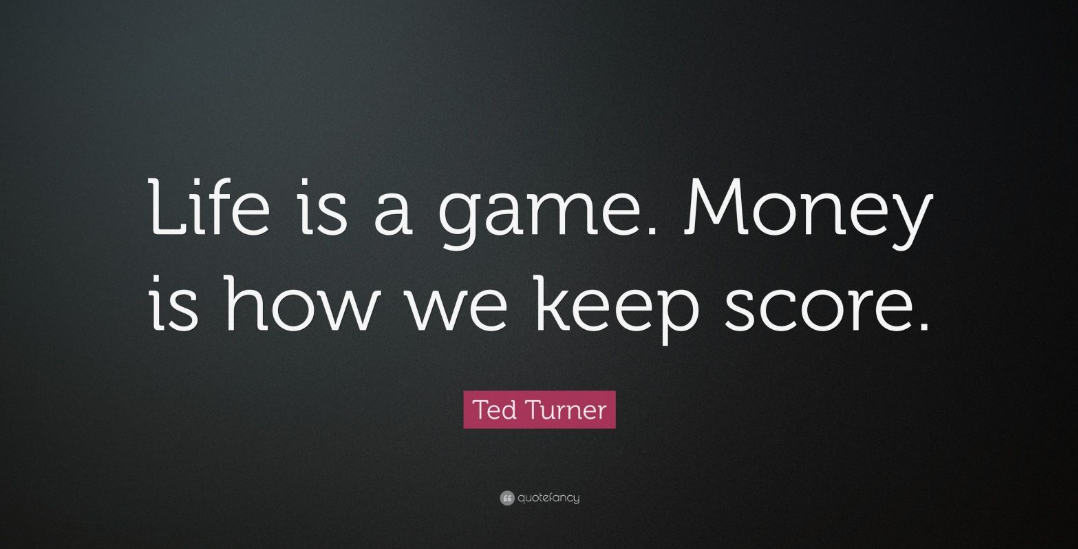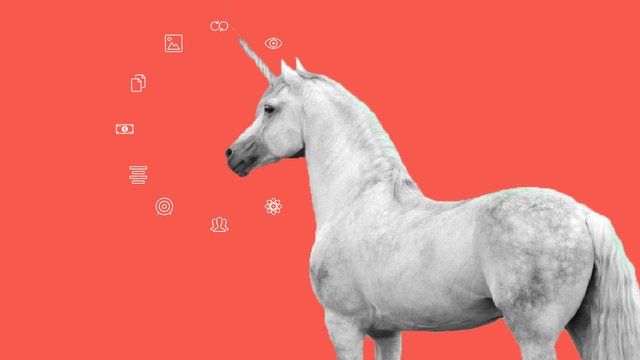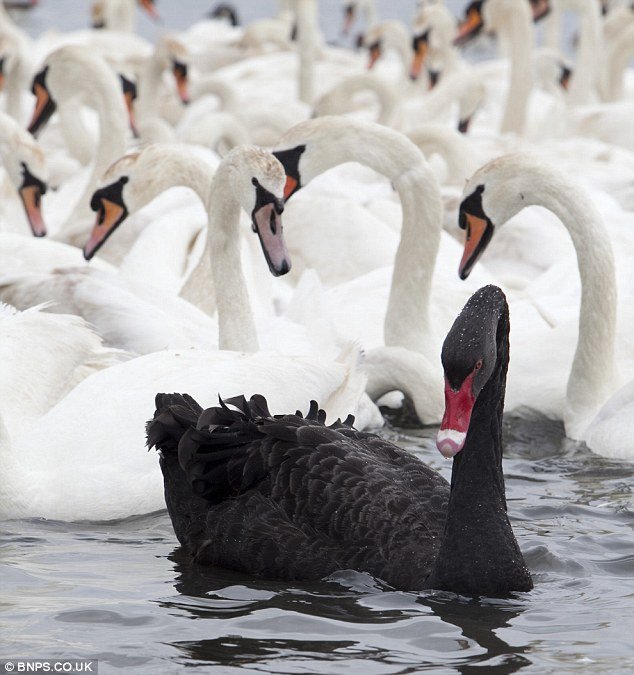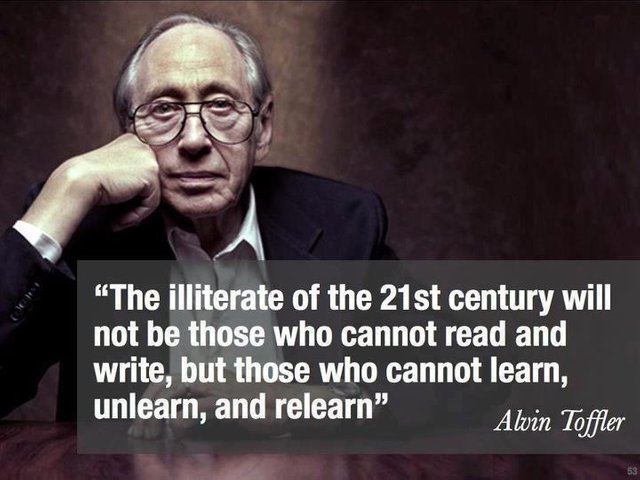The Importance of Knowing a Little Bit About Everything
All too often I have conversations with people asking me why and how I am able to talk about such a variety of topics. Heck, I sometimes see people accusing me of copyright because they can't fathom the idea that someone can go against the grain and learn a little bit about everything. Others, try to use my encyclopedic knowledge as an insult, since they have been taught to blindly believe that "expertise" is the highest value one can have. Popular belief dictates that knowing a little bit of everything is to be frowned upon.
In case you are not yet aware, you have give or take about 70-80 years of life on this planet. 1/3 of this you will spend sleeping and the other 1/3, most likely, dedicating your "expertise" to someone else. The 1/3 that remains you will spend being occupied by the deeds, toys and ideas of other people. This is how the vast majority of people spend their life.
Life is a game, and anyone who tells you different is probably trying to fuck you over. Within this time you have to learn the rules and use any means on your disposal to get ahead of it. The vast majority play it safe, following the herd and the aforementioned "safe" formula of the "expert". Few go against the grain and become their own masters by learning how everything works in the game. Whether you like it or not, money, is the points you gain in the game.

In the beginners mode, most people go to school and a learn a craft/major. In other words they chose to dedicate their life by being a small gear in the larger part of a machine. Then they spend the rest of their lives perfecting and polishing that single gear. They know close to nothing about whatever else goes on around them. Every single "expert" on their area is pretty much a recluse, shielding themselves from the surprises of the game. It keeps the money coming, it creates safety, but it doesn't take them anywhere. If a big calamity comes along, most players have to start all over by trying to find a place in the network. They never bother to be their own machine.
What most people fail to understand is that life is much like an economy. If you put all your eggs in one basket and something unfortunate happens then you lose everything. What most people perceive as the "safest" bet is actually the most risky. This is why diversification is vital.
In much the same way, knowing a little about everything gives you more security in case something unexpected happens. You are not only shielded against Black Swans but you can also take advantage of them. Moreover, it introduces one to more opportunities and thus unlocking the expert mode. Here, you combine knowledge from a variety of fields in order to see beyond the limited scope of the expert.
Take a look around you. The world is filled with struggling "experts". Gifted people that ponder why they cannot get ahead in life. I talked to a lot of them. Open a conversation in their field and you can see their chest pumping up and confidence overwhelming them. Start introducing a greater perspective in their field, explaining how it all comes together and they roll back to pre-school mentality, overwhelmed with awe.
Knowing a little but of everything is your only serious advantage in a world with an oversupply of "experts". Ph.D's work in cafeterias and have hard time finding job because really, having one today, doesn't mean shit. Education, for most fields, has become a meme, a joke. Anyone with money can attend classes and learn to copy-pasta from a handful of journals. With a little bit of dedication you can earn any average level degree. It doesn't take "smarts" to get a higher degree, just grit.

In our time and age, that extra "expertise" in your major is useless (unless you really like what you do). Most found about this the hard way, as soon as they finished a degree and got a job. College knowledge becomes irrelevant in a real world company. Heck, In less that 2 years everything you will learn becomes obsolete. If you belong to a more technical STEM field such as chemistry, then you are in somewhat better luck. If you end up like the 90% that works for a lab that has you squirting the same solutions into test tubes then you are pretty much fucked like the rest. Anyone can be trained to do that and SPSS (statistical software) can be automated. A robot can do both. No degree needed.
My point about a wide range of knowledge will become more evident in the coming years as automation takes over. The narrower your field of knowledge the more replaceable you will become. The more complicated and variable your processes the more unique and irreplaceable you will be. This is why you see many current "experts" in the fields trying to get an edge by earning a second or even third degree. The smart way is not to go upwards the "specialization ladder" but sideways.
The most important part of knowing a little bit of everything is that of independence. Most have no idea how to fix their own shit. They constantly have to rely on others in case something bad happens. Most have never killed an animal or planted their own veggies. If you know a little bit of everything, you become self-sustained. Even if the world goes to shit, you will have much better chances of survival.
I always admired people who knew a little bit of everything but excelled as experts in their field. Marie Curie was one of them. She knew a little bit of everything and made use of her knowledge in a shack performing a variety of experiments. She was the original "mad scientist" if you like, having hands-on experience in just about all materials and processes that were going on during her time. As a result she excelled in both physics and chemistry. In contrast, take for example most modern scientists today. Ask them to make their own test tube or fix their own computing devices. They will be paralyzed. One thing goes down, the entire process stops.
This is how fragile "expertise" is today. Your knowledge becomes nothing without an interdependent context. Experts have become vital in our system because of economic efficiency, not sustainability. The only way to see the big picture triumph over the overcrowded middle is to have an edge in knowledge. When you reach a point knowing a little of bit of everything, then you become untouchable.




Good points! Diversification is a key to survive in a more and more mundane and automated world. I will never forget the Steve Job's stanford commencement speech where he talked about connecting the dots. Being very knowledgeable in many fields he was able to utilise it all in the development of Apple.
One of the principles that I live by is summed up in this: "It is not the expert in any one field that will make the new discovery; it is the person that is second best in multiple areas!". I constantly add new skills and knowledge to an already very eclectic mix. I thanks for a good article.
Very few realize this. Stay ahead of the game.
Life is really a game but from my perspective there isn't anyway to win or lose, you just have to participate. Money is just another thing you need along the way, no need for high 'scores' it all depends on your comfortable level.
Knowledge is indeed very important and the wider it is the better, if you're specialized into one topic and never even care to learn anything else you wont get to far.
Thanks for sharing such wise words.
Have a great weekend!
Well, being alive pretty much does ensure participation.
That's how I was trying to explain it to somebody the other day, I was put on this earth not by my choice, I didn't want to grow up and have a career. Now that I'm older and have to think about supporting a lifestyle it's like I have to be here and I have to do this, and I have to do this because i'm alive.
Did somebody just say: Hamster wheel?
you misspelled "rat-race"
Hi @kyriacos I've published an article about you, check it if you can, thanks.
29 Best Steemians Of The Day To Follow 29th July 2017
https://steemit.com/blog/@jzeek/29-best-steemians-of-the-day-to-follow-29th-july-2017
thank you
Exactly, there really is no such thing as a lot or little money, it's all relative. To some, a $40,000/year salary would be barely scraping by (think living in NYC), but to others in some countries that would be a king's ransom.
You're so right my friend, it also depends on how your raised. If your raised in a 'poor' family you might have to go through more struggles and learn more along the way, but i'm not say that is how it always works.
great point @jerry12 - I've been lucky enough to have been raised in a nice neighborhood (actually the town where Home Alone was filmed, now you can picture it), loving family, fine with money, etc. Now does that mean I didn't learn as much...? Maybe, or I would say definitely, in some way I didn't learn the same lessons a scrappy street growing up on the streets might learn, nor did I learn the same lessons of the son of a successful investment banking firm might have learned...but some valuable lessons I learned all the same.
I'd conclude by saying we all have our own experience, and learn different "life lessons" from this. Still though, a kid who has everything handed to them on a silver spoon arguably learns a lot less than someone growing up who was forced to accomplish and earn on their own (no matter their financial situation).
Crazy cool you were raised in the same town, I used to watch home alone during Christmas time, almost every year.
I'm not judging you for having a 'good' childhood, I'm glad you had a great time growing up. And I'm not saying I had a hard time, I had a loving family, never been classed as 'rich' but a great family.
And we are all just people, it's not your childhood that determines your future, it's only you, yourself who chooses what to learn and whether you want to learn or not, of course it helps if your curious and interested in learning.
Haha absolutely, no worries I wasn't thinking at all you were judging, I was just reflecting on my personal learning experience in the context of your article and our discussion..yep, everyone has both different opportunities AND choices what to make out of these opportunities.
Great article. I have to agree that there are advantages to specialising in not specialising. Independence and personal freedom not the least of them. I've also lived my life on the basis that I should cast my attention over as wide a variety of subjects as possible. I follow this philosophy in action as well as thought, seeking to gain as wide a variety of life experiences as possible (having lymphoma, birth of my son, 10 month honeymoon literally around the world, emmigration, throwing lumps of hardened lava into molten lava and the agonies of working as a pumpkin picker in 40C heat are a few of my more treasured experiences).
That said I'll play devils advocate and take issue with a few things you've said or quoted.
First off I don't really agree that being a generalist is necessarily the way to go in terms of employment prospects in the future. It seems to me better paid jobs are increasingly about becoming "an expert" in ever more specialised fields. This trend can only accelerate with greater automation. Unless various systems change radically the future for the generalist could be tough "employment" wise.
Really though my main issue is about life being a game and money being the scorecard. I personally have never set out to have accumulating money as a goal, rather I prefer to change your equation. I would far sooner reduce the proportion of my life I must devote to aquiring money and free up more time for doing what I wish, exploring more of life. To me personally I believe it is infinitely more important to judge me by the number of people at my funeral, my family and friends, than by what I leave in my bank account.
We have been raised to hate money but this is not the case. Whether we like it or not, it is what it is and we have to master the art.
Very true. In a presentation I gave just over a year ago about "21-century skills", I had multi disciplinarity as one of them. And for a couple of reasons. Many people seem to think that in the age of the internet you don't need to know facts, but instead only need understanding as you can always look facts up. However, I think that since innovation often boils down to combining existing sets of knowledge in a new and unique way, this can only be achieved through being multidisciplinary. You can't imagine new solutions, or synergies, from a field you're not familiar with. So although you may not master everything, you can still be literate about almost everything.
Anyways, for roughly 6 years I've had a simple rule to spend 30 minutes every day learning something new, on a topic where I have no prior knowledge. (It usually boils down to watching a random TED-talk followed by some google searches on parts of it I found interesting). Just to keep my ability to learn and re-learn alive.
As one of my favourite quotes goes:

I have an article on this subject in the loop myself. Hope to have it up sometime next week.
very well said.
Reminds me of a Heinlein quote:
A human being should be able to change a diaper, plan an invasion, butcher a hog, conn a ship, design a building, write a sonnet, balance accounts, build a wall, set a bone, comfort the dying, take orders, give orders, cooperate, act alone, solve equations, analyze a new problem, pitch manure, program a computer, cook a tasty meal, fight efficiently, die gallantly. Specialization is for insects.
I'm with you on learning a variety of different subjects. The problem with specialization is that the learning curve in any subject flattens out after a while. We get a limited amount of time here on Earth and if you want to maximize your learning you have to stay on the steep part of the curve.
well said
"Knowing a little bit of everything is your only serious advantage in a world with an oversupply of "experts". Ph.D's work in cafeterias and have hard time finding job because really, having one today, doesn't mean shit. "
That hit close to home for me. Only now that I am almost through, I have come to realize how a specialized career in Science basically only transforms you into a worker that is only useful in the context of being a cog in the greater machine that academia is. If you want to go your own way and not just be a freaking underpaid freelancer (because that is what natural science doctors end up being), you really need to be creative and find a way to diversify and exploit your other traits and knowledge that are not heavily restricted to a specific research area.
And just one quick note about the example of Marie Curie and all those scientists of old that were Renaissance men: I think it is a bit unfair to expect from the modern scientist to have a mastery on the understanding and functioning of most current tools, concepts and research behind them, since the amount of information available now is exponentially bigger than it was one or two centuries ago; in other words, there is a lot more to know now than then. I don't think you necessarily have to "know it all", but more like have a good idea of where to look.
Interesting article, as per usual, @kyriacos!
Super impressed with your thoughtful response @irime - now following you! It seems like you have a background in science as well (hence the "culture and science") in your profile. Just curious, in what respect?
Completely agree, I've heard accounts where scientists or university researchers will postulate or publish hypothesis not accepted by the mainstream peers in their field, they've thereafter been unofficially shunned from academia (or their field of science), often lose funding/grants, and find it generally hard to find employment. It's a shame but not sure what can be done about the sad state of affairs..wie schade.
Also, noticed you're in Berlin.. viele grüße aus HH!
True, it is rather harder to have mastery over the new machines but I have seen people in labs "freezing" because the computer stuck and they didn't know how to troubleshoot even after they were instructed several times. Or a centrifuge needing a rubber band replacement and having to wait for another "expert" to do a simple task.
Again, the point is knowing a little bit about everything. You don't have to know how to build the darn centrifuge.
I agree 200%: most of the interesting innovation/research are at the intersection of several fields. You have to be another kind of "Jack of all trades, master of none".
I understand fully the part of being a cog as you described, you have to be tough and to continue to stimulate your understanding, your creativity.
I define my own life as "jack of all trades, master of none" and I sure have lived an interesting and diverse life. I love how you state it is about "going sideways." Specializing in anything does not make sense to me in a world that requires us to see the "big picture," in fact, it seems like a form of distraction to focus with such an intensity that you have your blinders on! I feel my superpower is diversifying my knowledge base so that I can talk to and relate to nearly anyone, whether an immigrant, tradesperson, surgeon, five-star chef, stay-at-home mom/dad, a gender-fluid teenager, a priest, a medicine woman, engineer... why limit yourself?!
well said.
@kyriacos great follow up to your last post.
It reminds me of a Quote from Robert Heinlein (a bit of a douche from what I understand, but he wrote some great Sci-Fi):
I can't claim to have done all of those, it remains to be seen whether or not I die gallantly.
It makes me wonder what kind of insects the human race is becoming?
Now I need to go see what's trending on Facechat. ;-)
we are a virus
This was a great article. Thank you for your input. I work in a technical field with no college background, but I have have experience and the ability to find creative solutions. I would not be able to do this if I had a focused set of knowlege. Many of the graduates that we get are narrow minded and usually are unable to understand anything outside of their job description. This gives me the advantage of being versatile, thus making me more valuable.
good example